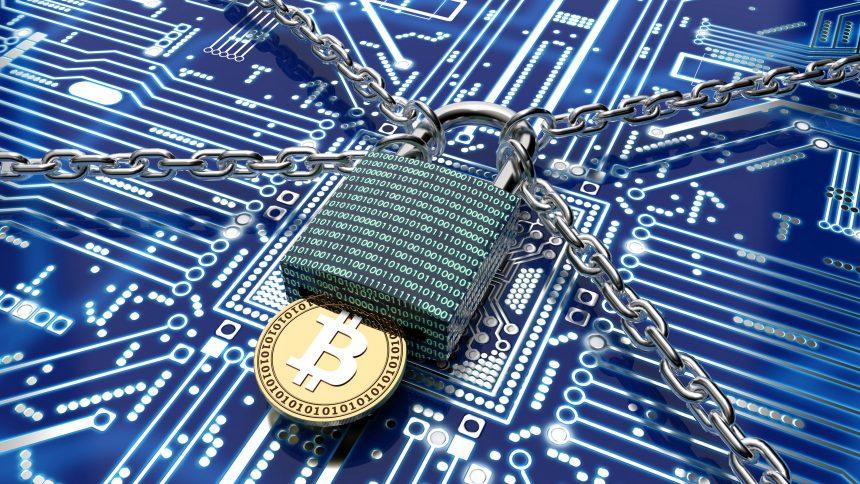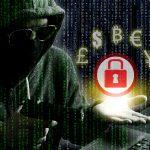Ransomware is a dangerous and malicious form of malware that encrypts files on an infected system, rendering them inaccessible to the user. Once the files are encrypted, the attacker demands a ransom payment in exchange for the decryption key, often threatening to permanently destroy or leak sensitive information. This form of malware has become one of the most significant threats to individuals and organizations worldwide. In this article, we’ll explore the BioBio Kasper Ransomware, detailing its functionality, installation methods, consequences, symptoms, detection names, and a comprehensive removal guide.
Download SpyHunter Now & Scan Your Computer For Free!
Remove this and any other malicious threats to your system by scanning your computer with SpyHunter now! It’s FREE!
What Is BioBio Kasper Ransomware?
BioBio Kasper Ransomware is a specific variant of ransomware designed to encrypt a wide variety of files on an infected computer. This ransomware is typically spread through malicious email attachments, infected websites, or via vulnerabilities in outdated software. Once installed, it encrypts files, making them unreadable without the decryption key, which is only provided after the victim pays the ransom.
Biobio (Kasper) ransomware encrypts files and alters their names. The original filenames become appended with the attacker’s email address, a unique victim ID, and a “.biobio” extension. For instance, a file originally named “1.jpg” would be renamed to “1.jpg.EMAIL=[biobiorans@gmail.com]ID=[CC3B1F89FAA517E4].biobio”.
How BioBio Kasper Ransomware Gets Installed
BioBio Kasper Ransomware typically gains access to a system through various methods, including:
- Phishing Emails: One of the most common ways this ransomware spreads is through phishing emails, often disguised as legitimate communications. These emails might contain a malicious attachment or a link to an infected website. When users open the attachment or click on the link, the ransomware is silently installed on their computer.
- Exploiting Software Vulnerabilities: If a system has outdated software or unpatched security vulnerabilities, ransomware can exploit these weaknesses to install itself without the user’s knowledge.
- Malicious Websites and Downloads: Visiting a compromised website or downloading cracked software from untrusted sources can also lead to the installation of BioBio Kasper Ransomware. These websites are often designed to look like legitimate sites, tricking users into downloading harmful files.
Once installed, BioBio Kasper Ransomware performs several actions to ensure its successful encryption of files and secure communication with its command-and-control server.
Actions and Consequences of BioBio Kasper Ransomware
After the ransomware is installed, it typically performs the following actions:
- File Encryption: The primary function of the ransomware is to encrypt files on the infected system. Commonly targeted files include documents, images, videos, and databases. After encryption, the files cannot be opened without the decryption key.
- Ransom Note: BioBio Kasper leaves a ransom note (“biobio ransmoware.txt“) on the system, informing the victim of the attack and demanding a ransom payment, typically in cryptocurrency, to decrypt the files.
- System Lockdown: The ransomware may also disable system restore points, rendering it difficult for users to recover their files without paying the ransom.
Ransom Note Left by BioBio Kasper
The “biobio ransmoware.txt” ransom note appears in the form of a text file or an image on the infected system, and it provides the victim with details about how to pay the ransom. The note generally includes the following information:
- A warning that the files on the system have been encrypted.
- Instructions on how to contact the attackers and pay the ransom, often including a Bitcoin address for payment.
- A threat to delete or leak the victim’s files if the ransom is not paid within a set period.
Example ransom note text might look like:
kasper Ransmoware
ATTENTION!
At the moment, your system is not protected.
We can fix itand restore files.
To get started, send a file to decrypt trial.
You can trust us after opening the test file.
2.Do not use free programs to unlock.
To restore the system write to both : biobiorans@gmail.com and biobiorans@keemail.me
Telegram id:@biobiorans
Your Decryption ID: –
Symptoms of BioBio Kasper Ransomware
The symptoms of an infected system with BioBio Kasper Ransomware can be quite noticeable, and users may experience the following:
- Files are no longer accessible, with extensions changed to “.bbk” or a similar format.
- A ransom note appears on the desktop or in key directories.
- The system might slow down as the ransomware operates in the background.
- Security software may be disabled or deleted, making it harder to detect and remove the ransomware.
Detection Names for BioBio Kasper Ransomware
Several antivirus and anti-malware programs can detect BioBio Kasper Ransomware using different detection names. Common detection names associated with BioBio Kasper include:
- Trojan.Ransom.BioBio
- Ransom.BioBioKasper
- BK/BioBio.A
- Ransomware.BioBio
If your system is infected with BioBio Kasper Ransomware, running a full system scan using these detection names will help identify the threat.
Similar Ransomware Threats
While BioBio Kasper is unique, it belongs to a larger family of ransomware that shares common tactics. Other similar ransomware variants include:
- LockBit: Known for its fast encryption and aggressive demands, LockBit is one of the most well-known ransomware families.
- Conti: A sophisticated ransomware that has targeted high-profile organizations and governments.
- REvil (Sodinokibi): A notorious ransomware strain known for its double-extortion tactics, which involve stealing data before encryption and threatening to release it publicly.
How to Remove BioBio Kasper Ransomware: A Step-by-Step Guide
If you suspect that your system has been infected with BioBio Kasper Ransomware, it’s important to act quickly to minimize the damage. Follow these steps to remove the ransomware:
Download SpyHunter Now & Scan Your Computer For Free!
Remove this and any other malicious threats to your system by scanning your computer with SpyHunter now! It’s FREE!
Step 1: Disconnect from the Internet
Disconnecting your device from the internet will help prevent the ransomware from communicating with its command-and-control server, stopping it from encrypting additional files or sending stolen data.
Step 2: Boot into Safe Mode
Boot your system into Safe Mode to prevent the ransomware from running automatically during startup. To do this:
- Restart your computer.
- As the system starts, press the F8 key (or Shift + F8 on Windows 10) to access the boot options.
- Select “Safe Mode with Networking” from the list of options.
Step 3: Use Anti-Malware Software to Scan and Remove the Ransomware
Download and install a reputable anti-malware tool such as SpyHunter. Perform a full system scan to detect and remove BioBio Kasper Ransomware and any other threats on your system. SpyHunter provides a free initial scan that can help identify the ransomware.
Step 4: Restore Encrypted Files (if possible)
After removal, you can attempt to restore encrypted files using backup copies if available. If no backups exist, be cautious about paying the ransom, as there is no guarantee the attackers will provide the decryption key.
Step 5: Update Your Security Software and Change Passwords
Ensure your antivirus and security software are up-to-date to prevent future infections. Additionally, change your system and online account passwords to protect your information from being stolen.
How to Prevent BioBio Kasper Ransomware and Other Threats
Prevention is always the best defense against ransomware. Here are some important steps to safeguard your system:
- Keep Software Updated: Always ensure your operating system and applications are up-to-date with the latest security patches.
- Use Antivirus and Anti-Malware Software: Regularly scan your system for malware using trusted tools like SpyHunter.
- Backup Your Data: Regularly back up your files to an external drive or cloud storage.
- Be Cautious with Email Attachments and Links: Avoid opening suspicious emails or clicking on links from unknown senders.
- Enable Firewall Protection: A strong firewall can prevent unauthorized access to your system.
Conclusion
BioBio Kasper Ransomware is a severe threat that can encrypt files and demand a ransom for their release. It often spreads via phishing emails and malicious websites. If infected, follow the removal steps outlined above to regain control of your system. For added protection, download SpyHunter to scan and remove malware from your device and ensure a safer computing experience.





